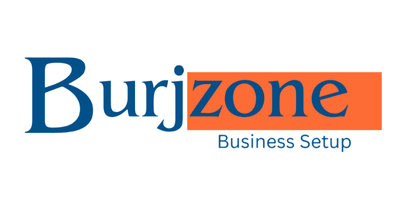Our Blog
Home / Blog
Post-Project Evaluation Frameworks for Businesses in the Emirates
Completing a project in the UAE—whether it’s a commercial real estate development in Dubai, a government tech rollout in Abu Dhabi, or a marketing campaign in Sharjah—is only part of the journey. What happens after project delivery is just as important as what happened during execution.
Post-project evaluations (PPEs) provide a structured way for businesses in the Emirates to analyze performance, document lessons learned, and enhance future project outcomes. In a region where regulatory compliance, cost efficiency, and stakeholder satisfaction are paramount, effective evaluation frameworks are essential.
1. Why Post-Project Evaluation Is Critical in the UAE
Businesses in the UAE operate in fast-moving, competitive, and regulated environments. Whether in Dubai Silicon Oasis or RAKEZ, companies must demonstrate continuous improvement and cost control. Post-project reviews help identify what worked, what didn’t, and how to improve operations across departments and locations.
For service companies and consultancies, especially those managing multiple clients across emirates, standardized evaluation practices build consistency and trust.
2. Key Components of a Post-Project Evaluation Framework
A strong PPE framework includes:
Project Objectives Review: Were the original goals met in scope, time, and budget?
Stakeholder Satisfaction: Feedback from clients, sponsors, and internal stakeholders.
Cost Analysis: Final budget vs. planned; reasons for over/under-spend.
Timeline Accuracy: Actual completion vs. scheduled milestones.
Risk Assessment: How effectively were risks identified and mitigated?
Team Performance: Evaluation of communication, collaboration, and role execution.
Lessons Learned: Documenting both strengths and failures for future use.
This data becomes especially valuable when applying for future projects or government tenders across emirates.
3. Methods of Conducting Post-Project Evaluations
Different formats can be used depending on project scale and industry:
Internal Review Meetings: Weekly post-delivery debriefs with project teams.
Client Surveys: Anonymous feedback forms or structured interviews.
KPI Reports: Comparing actual outcomes to planned metrics.
Audit Reports: Especially important in regulated zones like JAFZA or ADGM.
Third-Party Evaluations: External auditors or consultants provide unbiased reviews for large projects.
In digital marketing or software projects in Dubai Internet City, for example, data analytics often play a central role in these evaluations.
4. Reporting and Documentation
Clear documentation is essential to preserve organizational knowledge. A standard post-project evaluation report typically includes:
Executive Summary
Project Overview
Key Findings (what went well / what went wrong)
Data and Metrics
Recommendations
Appendices (e.g., financials, feedback transcripts)
Many firms in the UAE use centralized project management tools or cloud ERP systems to store these documents, ensuring team members across Dubai, Abu Dhabi, and Fujairah can access them.
5. Common Mistakes to Avoid
Delaying the evaluation until details are forgotten
Ignoring negative feedback due to internal politics
Failing to act on findings in future projects
Treating it as a formality rather than a value-building tool
Lack of stakeholder participation, especially in cross-functional teams
To avoid these pitfalls, set a clear post-project review timeline (ideally within 1–2 weeks of completion) and assign accountability.
6. Tailoring Frameworks by Industry
Construction firms in Dubai South may focus more on cost, safety, and subcontractor performance
Tech companies in Sharjah Research Park will prioritize agility, feature delivery, and end-user feedback
Government contractors in Abu Dhabi must align evaluation frameworks with regulatory KPIs and compliance mandates
Each sector requires customization while adhering to core evaluation principles.
Final Thoughts
A consistent and objective post-project evaluation framework helps UAE businesses grow smarter with each completed initiative. Whether you’re managing large-scale developments or agile digital sprints, learning from the past builds stronger future outcomes.
For firms operating across multiple emirates, post-project evaluations are a valuable tool for maintaining standards, improving decision-making, and building institutional knowledge that scales.
#PostProjectReviewUAE #ProjectEvaluationDubai #ProjectClosureFrameworks #AbuDhabiProjectAudit #SharjahProjectLessons #ProjectManagementUAE #DubaiBusinessImprovement #KPIReviewUAE #ProjectReportTemplatesUAE
